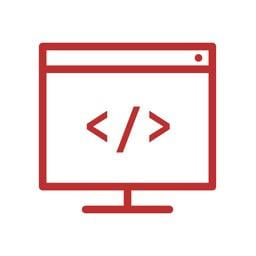Unleashing the Power of PHP: Building Scalable and High-Performance Web Applications
Identify bottlenecks first. Before optimizing, find bottlenecks. Common culprits include:
- Slow Database Queries: Inefficient SQL queries can significantly impact performance.
- Inefficient Algorithms: Poorly optimized algorithms can be slow.
- Excessive Server Load: High server load can degrade performance, especially during peak traffic.
- Suboptimal PHP Configuration: Incorrect PHP configuration settings can hinder performance.
2. Optimizing Database Queries
Database queries are often the primary performance bottleneck. To optimize them:
- Use Indexes: Create indexes on frequently queried columns to speed up search operations.
- Minimize Query Executions: Combine multiple queries into fewer, more efficient ones.
- Optimize Query Structure: Use JOINs and subqueries judiciously to reduce query complexity.
- Leverage Prepared Statements: Prevent SQL injection and improve performance by using prepared statements.
- Caching Database Results: Cache frequently accessed data to reduce database load.
3. Leveraging PHP Caching Mechanisms
PHP offers various caching mechanisms to improve performance:
- Opcode Caching: Precompile PHP scripts into bytecode to reduce interpretation overhead.
- Page Caching: Cache entire HTML pages to minimize server load and database queries.
- Data Caching: Cache frequently accessed data to reduce database load and improve response times.
4. Optimizing PHP Configuration
Proper PHP configuration can significantly impact performance. Consider the following settings:
- Memory Limit: Increase the memory limit to accommodate complex operations.
- Maximum Execution Time: Adjust the maximum execution time to prevent timeouts for long-running scripts.
- OPcache: Enable opcode caching to improve script execution speed.
- Error Reporting: Configure error reporting levels to balance debugging and performance.
5. Utilizing PHP Frameworks
PHP frameworks provide a structured approach to web development, offering numerous performance benefits:
- Built-in Caching Mechanisms: Frameworks often include built-in caching solutions.
- Optimized Routing: Efficient routing systems can reduce request processing time.
- Security Features: Frameworks provide security measures to protect your applications.
- Community-Driven Optimization: Benefit from the collective knowledge and experience of the framework community.
6. Employing Asynchronous Programming
Asynchronous programming allows your application to handle multiple requests concurrently, improving performance and scalability. PHP frameworks like Symfony and Laravel support asynchronous programming techniques.
7. Monitoring and Profiling
Monitor and profile continuously. Use tools like Xdebug and New Relic to track performance metrics and pinpoint bottlenecks.
Conclusion
By following these strategies and techniques, you can significantly enhance the performance and scalability of your PHP applications. Remember that optimization is an ongoing process. Continuously monitor your application's performance and make necessary adjustments to ensure optimal performance.
Easyupload - Your Brand, Our Canvas Masterful Web Design and Development
Docs Google - Your Brand, Our Canvas Masterful Web Design and Development
Btafile - Your Brand, Our Canvas Masterful Web Design and Development
Dz4up - Your Brand, Our Canvas Masterful Web Design and Development
Mediafire - Your Brand, Our Canvas Masterful Web Design and Development
Dosya - Your Brand, Our Canvas Masterful Web Design and Development
4shared - Your Brand, Our Canvas Masterful Web Design and Development
K2s - Your Brand, Our Canvas Masterful Web Design and Development
Depositfiles - Your Brand, Our Canvas Masterful Web Design and Development
Uploadnow - Your Brand, Our Canvas Masterful Web Design and Development
Filefactory - Your Brand, Our Canvas Masterful Web Design and Development
Files.fm - Your Brand, Our Canvas Masterful Web Design and Development




Comments
Post a Comment